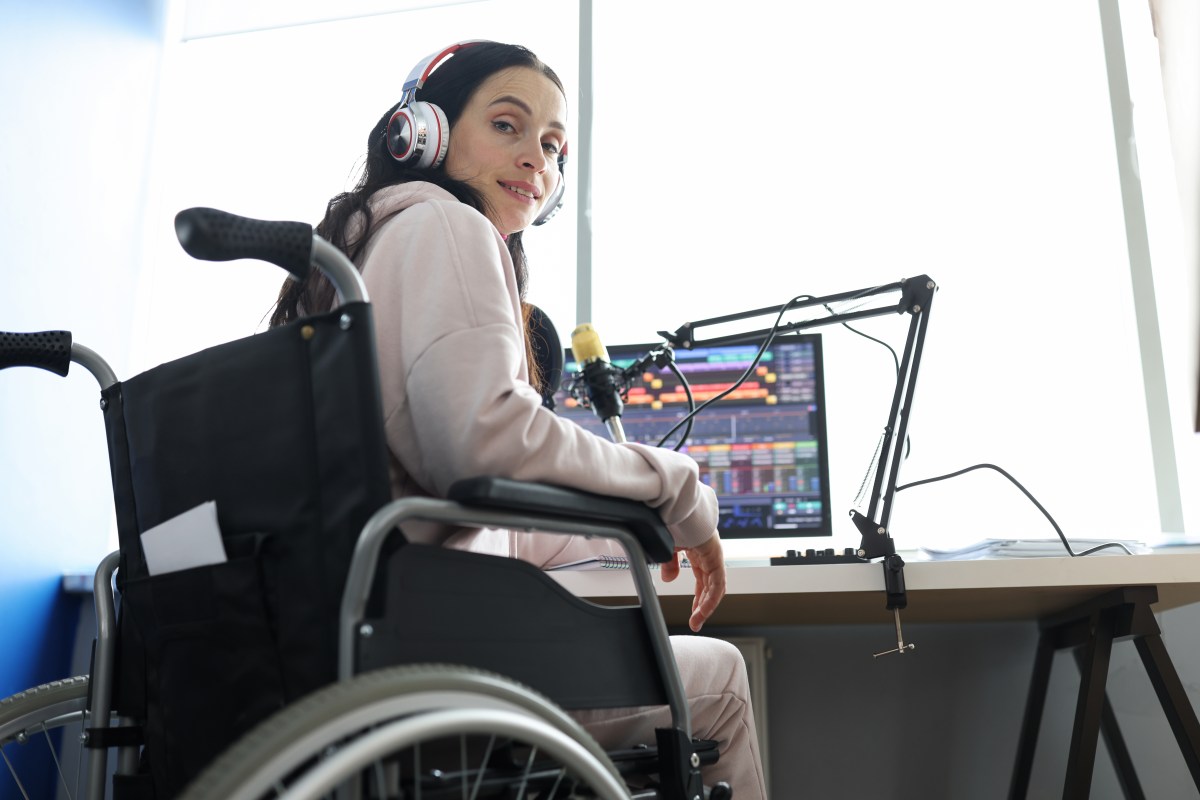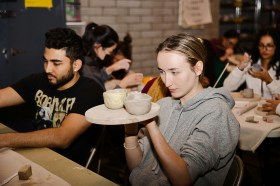When I was bedridden with fatigue, video games were my lifeline – being able to get out of the body that was presently rebelling against me and into a story or life of someone else was lifesaving. I’ve had a condition called fibromyalgia for almost 10 years. This disability changed the way I considered my life, my health, my work, and what I needed from the world and people I work with. It changed the way I looked at games and, with time, I’ve made a lot of peace with my disability and even learned to love it as a key part of who I am. In the video game industry, accessibility has many argued definitions from many different people, but to me the core of accessibility is about providing options and information to people that allows them greater access to their goals – whatever they may be. So how do we make games, both playing and the process of creating them, better for players and developers?
Read: Radical access: the future of access in the arts
The focus of accessibility tends to generally be on players – in-game options that allow them to tune visuals, audio, difficulty and more to provide them with better access to playing the game the way they want and/or need to. Often, people like to argue with people otherwise uninterested that the reason to implement accessibility options is it “sells” – after all, a 2019 report showed 95% of people played Assassins Creed Odyssey with subtitles on, which is far higher than the percentage of people likely to have hearing issues.
When I started in games, I was particularly curious about accessibility on the studio side – many don’t feel safe enough to even reveal they have accessibility needs, in case it has an impact on their likelihood of hire or retainment as an employee. I had a director once (at a studio where I was public about my disability) tell me offhand in a performance conversation that, despite my high work output, everything getting done and my commitment to what we were making, I needed to be ‘more consistent’.
When I pressed, I realised this was a way of saying “could you get sick less often?” In an industry where many workplaces suffer crunch (lots of overtime work, for consistent periods of time), working for “passion” rather than pay or support, stress of potential lay-offs and churn through young creatives, accessibility needs often prevent these individuals from working in the industry. Often, these people are the most aware of what kind of impact accessibility can have on players, and are the best placed to implement to support them.
Developers generally want to make accessible games, so what is stopping them? A lot of the time, accessibility falls behind for teams due to fear rather than ignorance or malice – fear of getting it wrong, of offending someone, of not doing enough. We’re starting to see studios hiring key accessibility roles in-house to support blockbuster titles, which is a great improvement. And industry understandings are better than they’ve ever been on meaningful changes that can be made in games. However, these fears continue to prevent other teams and smaller, less resourced teams from doing good work.
Sometimes, there’s simply no one in the studio with enough knowledge to champion it, so it goes unexamined. Sometimes there’s curiosity, but people don’t want to ask the wrong questions or aren’t given the time (or pay) to explore and learn, so that curiosity goes unanswered. Some friends and I founded Accessibility Unlocked a few years ago, a volunteer organisation for disabled creators (including those with neurodivergence) to try and combat this feeling of “I don’t know where to even start”. The goal is to act as a connecting point for developers, resources and players in order to provide a place where you can safely ask what you may feel are silly questions, in the hopes of providing the start of a path forward – whether for players or for your team.
Another critical piece of accessibility that people don’t realise is just as important as the options themselves is access to information. The level of work a disabled person must go to in order to even understand if they can play a game – the research, videos, scrolling to find images of options menus and more – can be exhausting and that’s before you even hit “buy”. It is just as important to tell your players what isn’t available, as it is to tell them what is. Players understand that, as indie developers, you’re limited in what you can do, when you can do it, and how much you can afford to put in, so every piece of information you add supports them being able to make informed decisions.
We provided extensive information about the in-game options for our players online in advance, engaged with them over emails, wrote up guides and shared them online to ensure they knew what they needed to know. In the same way internally, providing easy-to-access, no-questions-required information for staff around policies, procedures, who to talk to for what etc can deeply support accessibility needs for those who may deal with any number of conditions – for example, sick leave options, communication structures and more.
Often, one person in a team who cares about accessibility (usually the person who is themself marginalised) has to fight an uphill battle (whether it’s focused internally or externally) to make it a priority. The fight to even start the work can quickly become more time-consuming than the work itself, so they burn out and that churn repeats.
For Summerfall, accessibility has never been a one person job. The interest and commitment to it comes from the top down, not the bottom up. We have multiple members of the team with consideration, experience and interest in the space in their respective disciplines. We have multiple members of the team who may have accessibility needs of some kind, but are not expected to be accessibility experts alongside this.
We use sensitivity readers and play testers to help us understand where we may not have lived experience. It has never felt like an individual goal, but instead a team-wide interest in doing our best – even while we know that means we can’t do everything we may like to. By having structures inside the studio to support disabled developers, as well as our abled developers, we’ve built a system that allows for people who care about accessibility to not have to care alone. Our culture, processes and policies mean that we walk the walk for our developers as much as we walk the walk for our players.
We will continue to lose talent that can help make games more accessible and provide more context from different perspectives if we don’t make studios themselves more accessible. We have to work from all sides to achieve this, and that means having people with disabilities in leadership positions and key positions in your studios. So, look around at who is seated at the table on your leadership team and ask yourself who is missing. Don’t leave it up to people with accessibility needs to carry the load of the studio needs – they can’t and shouldn’t speak for everyone. Share information freely and willingly, internally and externally. Accessibility is a responsibility that requires buy-in from everyone – but can only happen when leadership makes it a priority.





